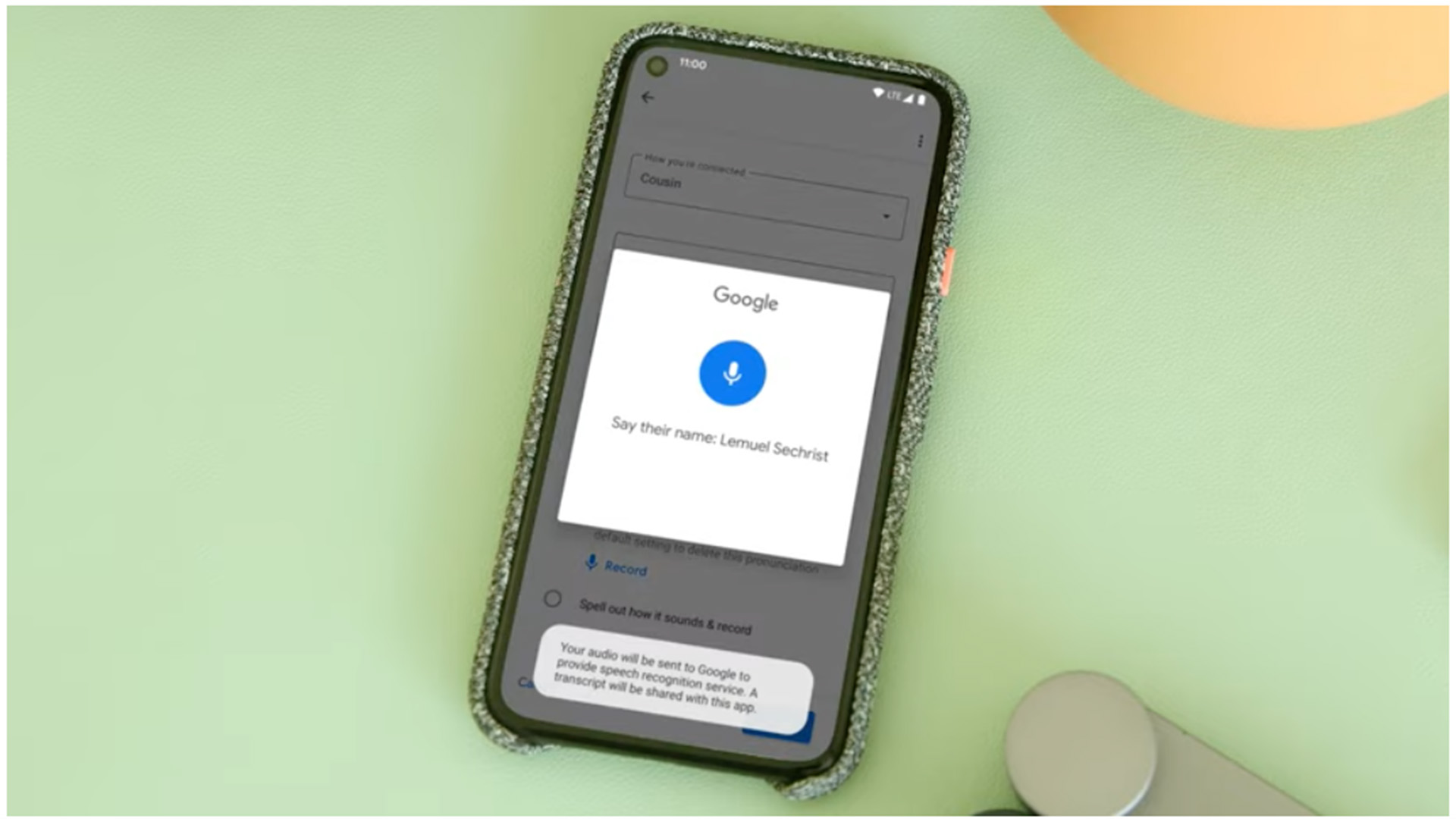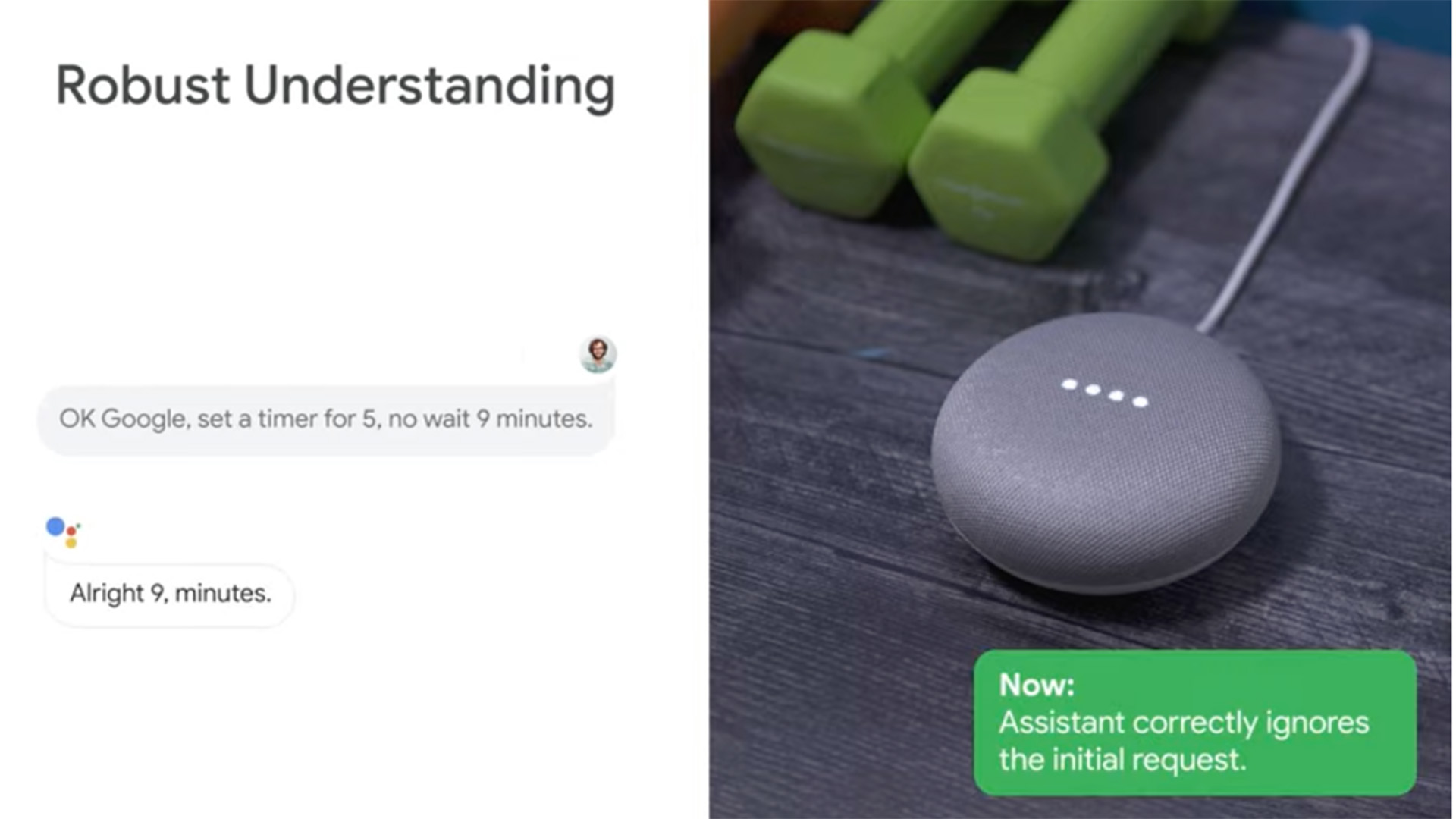Google Assistant is getting some much needed upgrades to fix these everyday annoyances
Improvements to Google’s AI will help pronunciation, understanding and context


Updates to Google Assistant will make your conversations easier, thanks to improved AI. The improvements are focused on context and pronunciation. You can now teach Google to say names the way you would say them, which not only makes it more pleasant to hear but also helps it to understand you better. By applying context to your commands Google will also be able to make changes to timers and alarms easier, as well as allowing you to have a more fluid conversation with follow-up questions.
The improvements come courtesy of Google’s bidirectional encoder representations from transformers (BERT) AI, which was first introduced in 2018. As smart as voice assistants have become, they are far from perfect, and it’s often their lack of understanding a command that seems perfectly straightforward that can be the biggest headache.
The biggest cause of misunderstanding is down to context. Traditionally voice assistants, such as Google Assistant, take the words you say in order and process them individually. Changing the order you say things could easily fox it, as could be using a name that doesn’t quite match what it has in a timer or contact.
- SecretLab MAGNUS Metal Desk review: the world's best gaming desk
- Galaxy Book Pro is a PC that’s more like a smartphone
- Google Pixel 5a is coming soon, new leak confirms

Correcting a mistake mid-sentence won't confuse it
Timers are arguably one of the most useful functions on Google Assistant, and these new improvements laid out in Google’s latest blog are designed to make setting and changing them less stressful. Changing your mind halfway through setting a time usually causes a weird result but the update is designed so that even if you say, “set a timer for 10 minutes – no, 20 minutes” it will correctly set it for 20 minutes.
When naming timers, Google Assistant is now able to understand that by ‘potato boiling timer’ you mean your ‘boiled potato timer’. It will also allow you to specify the first or second timer to make changes to if they are not named and make changes to alarms and timers by simply saying “make my alarm one hour later.”
By allowing follow-up questions, Google Assistant is now able to have more fluid conversations too. So, if asking “what state is Chicago in?”, and then asking, “what’s the tallest building there?” Google will know you want to know the tallest building in Chicago. This saves you from having the robotic conversations that are often needed to find the answer you are looking for.
But it’s the pronunciation functionality that is likely to make the biggest difference to those that use Google Assistant to access and call contacts from your account. The new functionality allows you to record yourself saying names in your contact list to correct the way Google says it. This is especially helpful for tricky names, but you can do it for any name. Personally, it bothers me when Gallagher is pronounced ‘Galla-ger’ rather than ‘Galla-her’, so I’d definitely change this.
Get all the latest news, reviews, deals and buying guides on gorgeous tech, home and active products from the T3 experts
Google Assistant doesn’t save your voice recording, it just adjusts the way it constructs the word in the future, so not only will it say the name right, but it will also understand the way you say it. These changes are due to roll out over the next few days.

As T3's Editor-in-Chief, Mat Gallagher has his finger on the pulse for the latest advances in technology. He has written about technology since 2003 and after stints in Beijing, Hong Kong and Chicago is now based in the UK. He’s a true lover of gadgets, but especially anything that involves cameras, Apple, electric cars, musical instruments or travel.